
Every young person has to make life-changing decisions about their sexual and reproductive health. However many of them cannot access clear, evidence-based information. IPPF's comprehensive sexuality education programmes enable young people to make informed decisions about their sexuality and health, while building life skills and promoting gender equality.
Articles about Comprehensive Sex Education
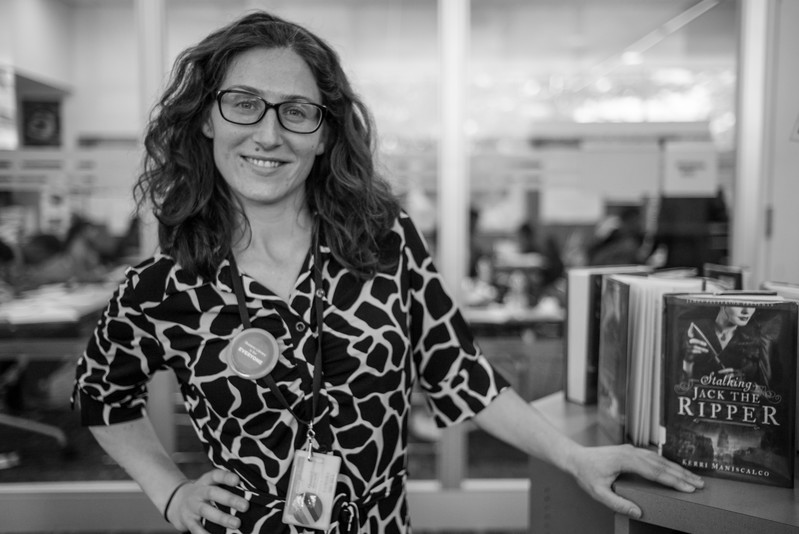
Bringing sex education out of the classroom and into the library in Queens
Planned Parenthood partners with Queens libraries to bring sex education out of the classroom and into the library. The partnership employs the library's traditional role as a source of information creating a safe space for today's teenagers to ask for support. Photography © IPPF/Bill Kotsatos Taking sex education to teens in Queens, NY
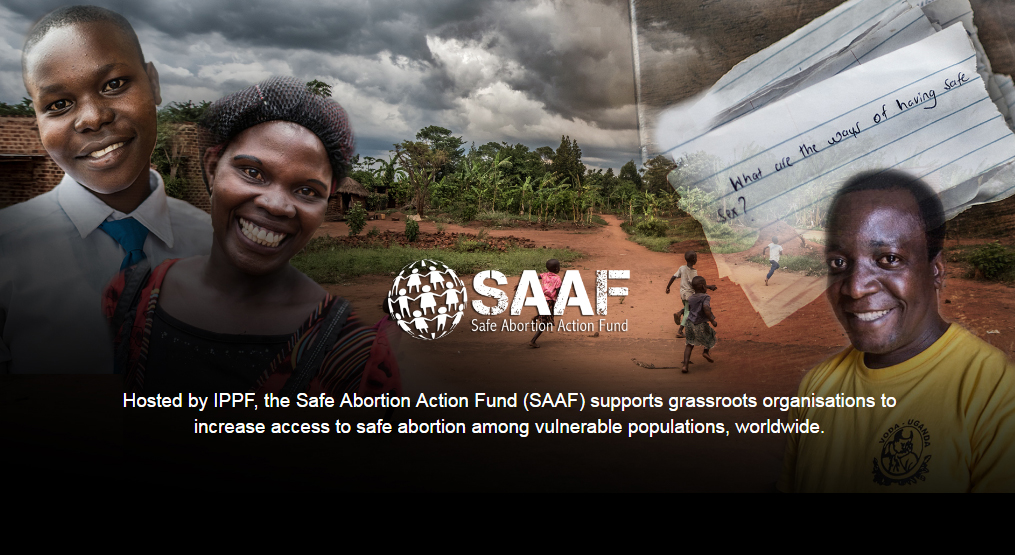
Safe Abortion Action Fund in Uganda
Safe abortion is heavily restricted in Uganda, yet gender inequality and sexual violence are widespread. Hosted by IPPF, the Safe Abortion Action Fund is helping vulnerable women to turn their lives around. People are learning about safe abortion and fewer girls are dying. Community attitudes have been transformed and social stigma has started to give way to human rights and understanding. Read the success stories and meet the people behind the scenes
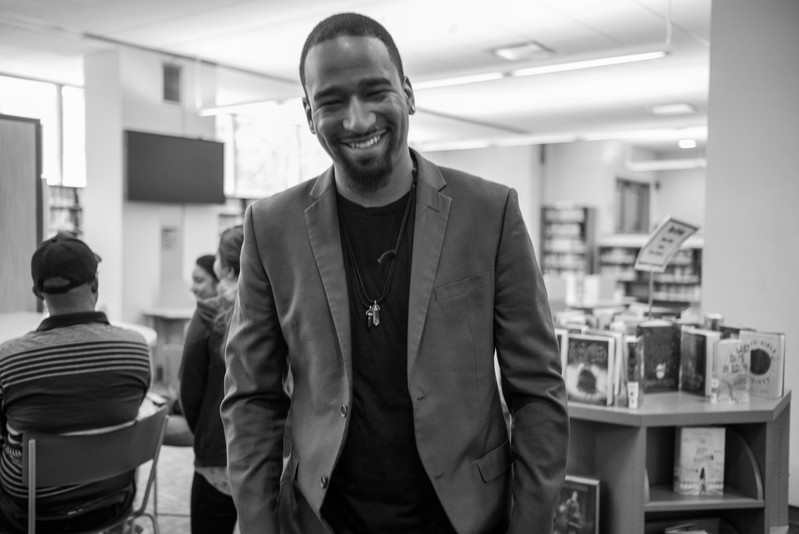
Taking sex education to teens in Queens
When Gary Hawkins began working at the library he assumed he would help teenagers with their homework or use his experience as DJ G Money to encourage them to pursue an interest in music. He discovered his duties were much broader when a teenage girl approached him for help. Her boyfriend had been arrested and she believed she was pregnant. Mr Hawkins knew what to do. Providing a listening ear and support, he talked to her about the different types of health services available in the New York borough of Queens, referring her to counselling. Mr Hawkins, a youth counsellor at Queens Library for Teens, was one of the first to benefit from a ground-breaking partnership with Planned Parenthood of New York City to help answer those tricky questions. It employs the library’s traditional role as a source of information and builds on the trust fostered by staff like him to make sure today’s teenagers - or anyone else - know they can ask for support. Staff at Queens Library branches have received training in how to handle questions about everything from sexually transmitted diseases to gender identity. Mr Hawkins said he never expected to face such a range of issues. “When they first hired me I was thinking about music mostly, I’m a youth counsellor so I expected to talk to the kids and help out with homework, I’m thinking music questions, studio stuff, but every day is something different. Me and those kids build relationships." The idea for the tie-up came from Tamara Michel, a community health co-ordinator at Queens Library. Librarians would come to her when they needed advice on tricky questions about health, sexuality and identity. “A lot of times if people didn’t know the answer to a health-related question or if they didn’t know where to find that information, it would come back to me,” she said. “I think maybe several years ago, people thought, ‘Oooh, can I answer that question?’” Staff wanted to help but no-one wanted to say the wrong thing or be accused of promoting personal values – a frequent worry around the subject of abortion, for example, a politically contentious issue. Those questions are particularly fraught in Queens. The borough has long been regarded as New York’s melting pot, home to immigrant communities from Latin America to the Far East, all with different religious and cultural values. In 2012 Ms Michel approached Planned Parenthood of New York City for help. The first step was to develop a set of 15 guiding principles that reflected library values and gave staff a solid foundation from which to address the issues. They include encouraging young people to talk to a parent or a trusted adult, to demonstrate acceptance of all sexual orientations, to communicate in a respectful manner and when to refer customers to other services. “It’s a framework so that all of our staff can be on the same page, making sure we are sending clear and consistent messages around health and sexuality,” said Ms Michel. That went hand in hand with 18 hours of training for the first tranche of staff. They learned how to set questioners at ease by validating and normalising their questions, saying things like “that's a good question” or "a lot of people wonder that". Melissa Malanuk, co-ordinator of teen services, said the training had given her a skillset and a level of comfort and confidence to take control of the conversation. “Like when someone asks you something then you repeat the question, which sort of sets the tone that this is an OK conversation for us to have - it’s acceptable and I’m not judging you on this,” she said. Almost 200 staff, representing all of the library’s branches, have been trained since the programme began. Planned Parenthood has also helped identify books, brochures and links to health providers. Randa Dean, Senior Director of Adult and Professional Services at Planned Parenthood of New York City, said the partnership was a natural fit. Bringing sex education out of the classroom and into the library made sense, she said, when so many people were already bringing their questions to librarians. “They may not know where to go for this information so they are going to the place they trust the most, and there’s no reason why the staff at the library and librarians can’t provide that basic information for them,” she said. "They are a trusted resource and with a little bit of partnership from us they have built their ability to be basic providers of that information, and they can connect to the more expert provision.” Some library staff needed more convincing than others, but the feedback has been overwhelmingly positive. Kacper Jarecki, community library manager at the South Hollis branch, said it was simply an extension of the role played by libraries through history. “We have a lot of books, a lot of materials that are open to us. “So of course, we are fans of having people educated and knowing what kinds of options and choices they have.” The most important factor is the human touch and a safe environment to ask questions. Even internet-savvy New York teenagers needed that, said Ms Malanuk. “If you don’t know what you don’t know, how do you find the right answer? Your smartphone’s not going to do that for you,” she said.
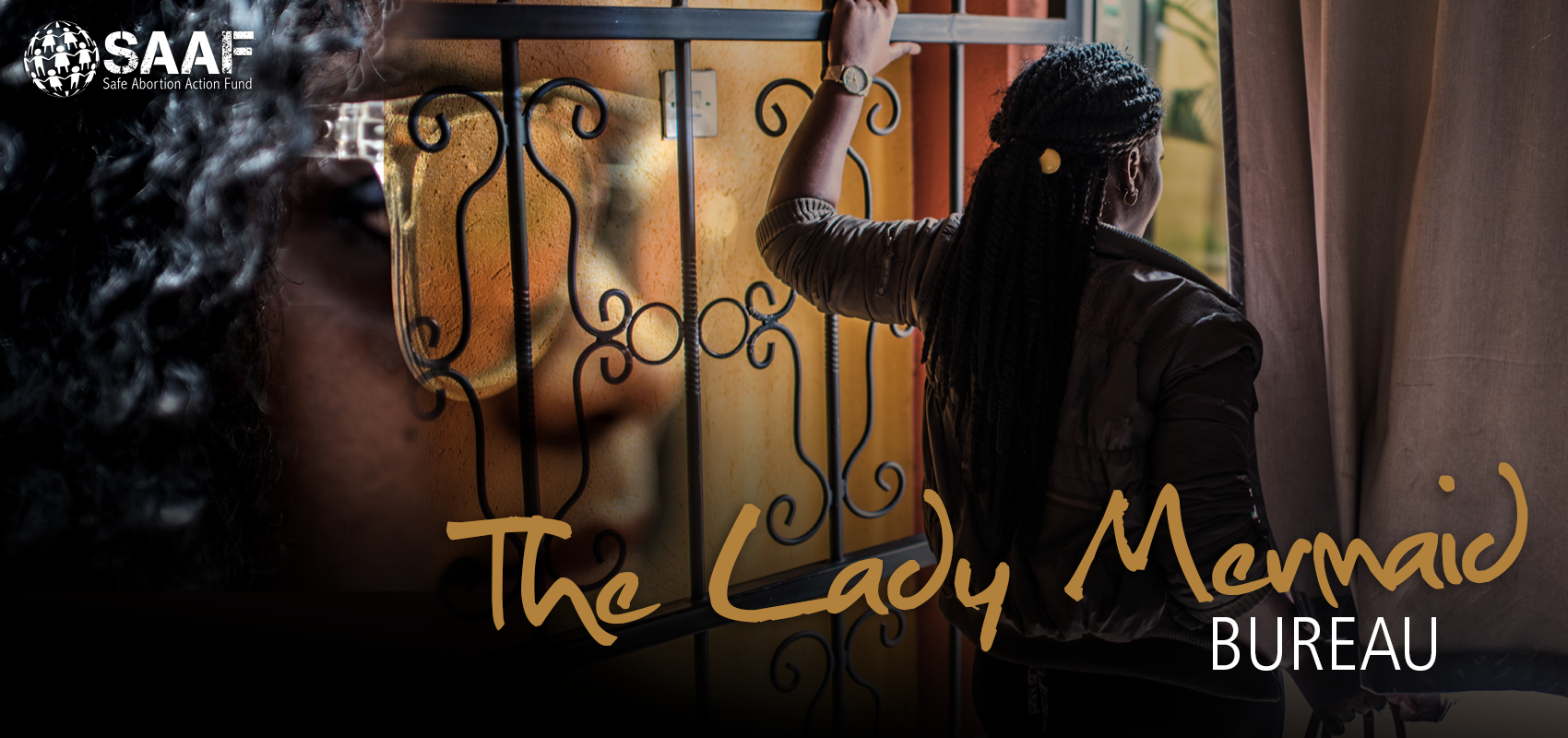
Sex workers in Uganda: fighting violence and inequality
In Uganda, 42% of all pregnancies each year are unintended. The country's weak economy is exacerbated by high levels of gender inequality and poor access to jobs for women. Many women who turn to sex work are at risk of abuse and often rape. Abortion is heavily restricted in Uganda and clandestine safe services are very costly. This results in further poverty for many sex workers and sometimes unplanned pregnancies or even death from unsafe abortion. View the project and meet the women who are turning their lives around
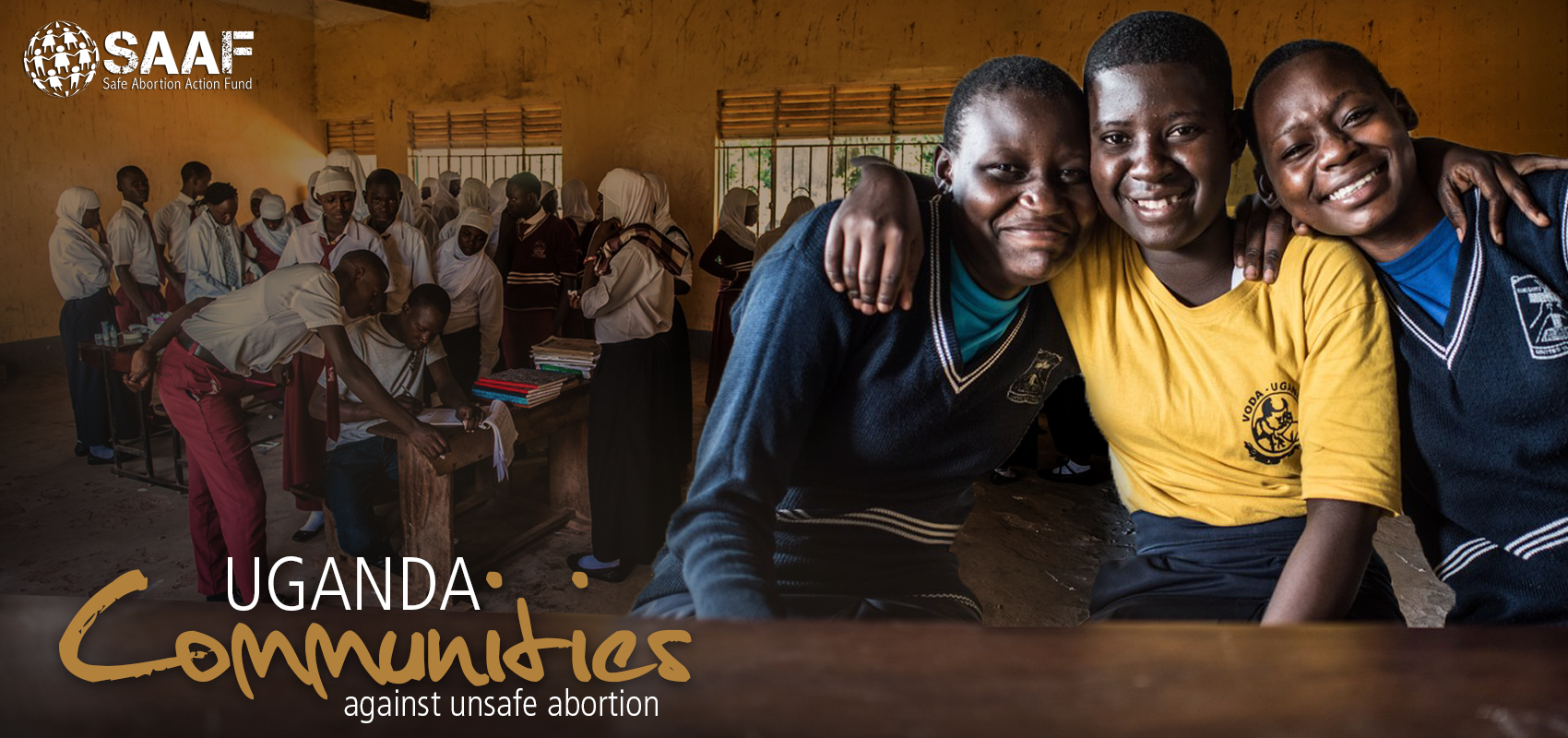
Ugandan communities against unsafe abortions
Rural communities in Uganda have a high prevalence rate of gender inequality, sexual abuse and incest. There is little provision of sexual and reproductive health services and abortion is highly restricted. The Safe Abortion Action Fund, hosted by IPPF, is financing the grassroots organization, VODA, to empower young people as changemakers in their schools and communities. With training and support, peer educators have been educating friends about sexual and reproductive health, and local health providers are serving women in need. Death from unsafe abortion was once a widespread problem but through the power of peer education, these have almost disappeared and community attitudes towards safe abortion has been transformed. View the project and meet the school communities making change
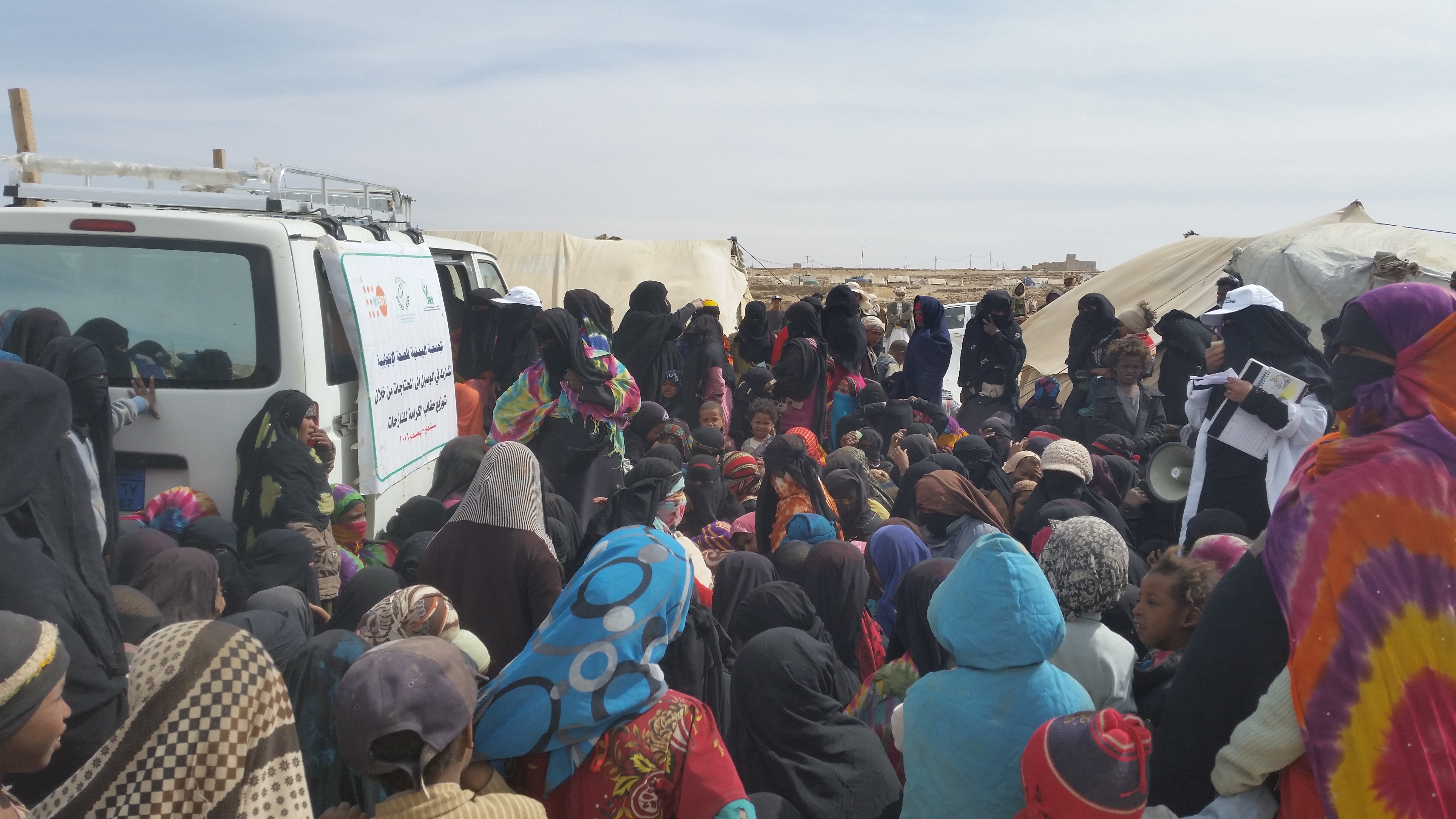
Humanitarian crises are not temporary, nor are sexual and reproductive health needs
Women and girls are disproportionately affected in humanitarian crises and face multiple sexual and reproductive health challenges in these contexts. IPPF has been providing much needed support to vulnerable communities through our global federation of member associations, who provide contextualised, timely and tailored interventions drawing on local partners' knowledge and expertise. However, recent shifts in the global political landscape are concerning and threaten to undermine IPPF's mission and impact on the ground. We live in a time when crises, whether brought on by human causes or natural disaster, have displaced more people than at any point since the Second World War. The needs of those driven from their homes are not transitory. Refugees now find themselves facing impermanent conditions for an average of 20 years. They must resort to living in temporary shelters or makeshift accommodation, and their refugee status often leaves them ineligible to access public healthcare and education. The UN reports there are more than 125 million people worldwide in need of humanitarian assistance. Of those, a quarter are women and girls between the ages of 15 and 49. And one in five of these women and girls is likely to be pregnant. A woman who has been forced to flee is particularly vulnerable. More than 60% of maternal deaths take place in humanitarian and fragile contexts, according to the UN Population Fund (UNFPA). At least half of these women’s lives could easily be saved. And yet women and girls affected by humanitarian crises face other risks too. A breakdown in civil order following disasters consistently increases the occurrence of sexual violence, exposure to sexually transmitted infections including HIV, and unintended pregnancies. After the 2015 cyclone in the Pacific Island nation of Vanuatu, a counselling centre recorded a 300% spike in gender-based violence referrals. Likewise, a study with Syrian refugee women displaced by conflict found that more than 50% experienced reproductive tract infections, almost a third had experienced gender-based violence, and the majority had not sought medical care. IPPF is at the forefront of delivering life-saving services. Our sexual and reproductive health program in crisis and post-crisis situations (SPRINT), established in 2007 and supported by the Australian Government, has ensured access to essential sexual and reproductive health services for women, men and children in times of crisis. Under the banner of our new IPPF Humanitarian division, the SPRINT initiative is now part of a global movement that seeks to provide all those affected by crises worldwide with dignity, protection and care. As a federation of 142 locally-owned but globally connected member associations, IPPF has a unique model for providing these vital humanitarian services. Our focus on valuing local solutions means our responses are rapid and sustainable. We see it as vital to be on the ground before, during, and after crises. Member associations work to mitigate against sexual and reproductive health (SRH) issues ahead of a crisis to reduce negative impacts, and remain afterward to assist communities to recover and rebuild their lives. When Cyclone Winston struck Fiji in February last year, IPPF’s local member association, the Reproductive and Family Health Association of Fiji (RFHAF), was already preparing to mobilise teams of volunteers and health staff. Initially, sexual and reproductive health was not prioritised at a national level, thus the first challenge was to convince the Government of Fiji and lead agencies of the critical importance of including sexual and reproductive health issues in the response. With support from IPPF and SPRINT personnel, RFHAF successfully advocated with the government to include reproductive health concerns into the post-cyclone needs assessment, and supported the Government in carrying this assessment out. Coordination and collaboration was critical as the damage was across an extensive area on several islands. Working in partnership with the Ministry of Health (MoH), UNFPA, Red Cross Society and local non-government agencies, RFHAF provided SRH care to remote areas identified as being worst hit by the cyclone. Colleagues from SPRINT and RFHAF split into three teams, moving into the field simultaneously to conduct 37 mobile medical missions to reach women and girls, with vulnerable pregnant women and new mothers prioritised. Comprehensive follow up beyond the initial response post-cyclone was a particular challenge for an organisation of just 11 staff. To address this, RFHAF leveraged their existing partnership with the MoH to facilitate training and handover of SRH service provision to district nurses and sub-divisional health centres, once these facilities were again operational. The response in Fiji utilised the Minimum Initial Service Package for Reproductive Health, which IPPF helped to pioneer. Commonly referred to as ‘the MISP’, the package is a series of priority life-saving interventions that IPPF seek to implement as soon as possible following a crisis.

Safe Abortion Action Fund in Uganda
Hosted by IPPF, the Safe Abortion Action Fund (SAAF) supports grassroots organisations to increase access to safe abortion among vulnerable populations, worldwide. These stories could have been different Safe abortion is heavily restricted in Uganda, yet gender inequality and sexual violence are widespread. Hosted by IPPF, the Safe Abortion Action Fund is helping vulnerable women to turn their lives around. People are learning about safe abortion and fewer girls are dying. Community attitudes have been transformed and social stigma has started to give way to human rights and understanding. VODA Educating their peers about unsafe abortion LADY MERMAID'S BUREAU A graduate in need turns to sex work VODA Tackling taboos about abortion LADY MERMAID'S BUREAU From garbage collector to sexual health counsellor VODA Working to stop unsafe abortion for school girls LADY MERMAID'S BUREAU Life-changing care for sex workers Two grassroots projects changing women's lives VODA (Volunteers for Development Assistance) is a transformational program, run by volunteers and students who help friends and peers in rural Uganda. Previously many young girls were dying from unsafe abortions, but now communities are rallying to provide support, information and access to contraception. Meet the young friends of VODA The LMB (Lady Mermaid's Bureau) provides much needed legal aid and healthcare to sexworkers in Uganda. Exposed to rape and sexual violence, these sexworkers are gaining their confidence through hard-to-access post-abortion care and the LMB support network - an invaluable help in itself for those without family. Meet the women helped by LMB
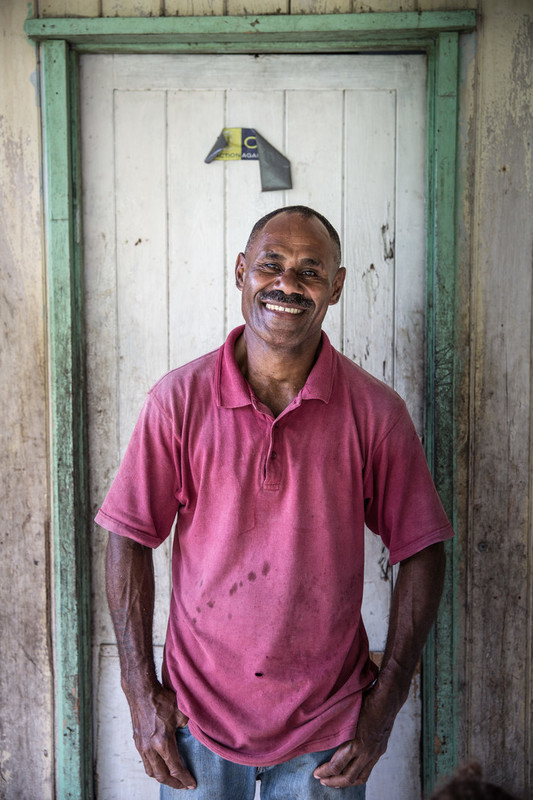
Leaders tackling taboos in Fiji
Cyclone Winston, which devastated Fiji, was the strongest to ever hit the South Pacific. IPPF’s humanitarian response there was carried out with our Member Association, the Reproductive & Family Health Association of Fiji, and is part of our SPRINT Initiative, funded by the Australian Government. Despite its flourishing international tourism industry, Fiji remains a deeply conservative and traditional society, bound by long-held rules on culture and conduct. In particular, any discussion about sex and sexuality is taboo: including talk of sex, condoms, pregnancy and sexually transmitted infections. Given Fiji’s relatively high rate of teen pregnancy (36 in 1000 in the 15-19 age group, according to UNFPA 2016 statistics), it is an issue of growing concern. It falls upon the village headman to provide guidance on how the issue is tackled: and when there is one who is progressive and not afraid to discuss taboo topics, it augers well for the sexual health of the entire community. Sevuama Sevutia is one such leader. The deputy headman of Naiserelegai village is a proud advocate of condom-use, telling the young people of the village that it is vital to wear them to prevent pregnancy. “My experiences, I share with the kids,” says Sevuama. “I tell the children, get to that stage of knowing what the sexual relationship is all about. Please look after yourself and if you have a problem, with the young boys or if someone is giving you the wrong advice, please tell people. It’s my job to tell them, to call their mother, their father.” “Nowadays, as the education level rises, we have to open up. But in the village, in the olden days, when people would see condoms they would say, 'no no, don’t talk about that'. But I am encouraging them to open up.” His children, too, are encouraged to be open. “I tell them, this is a condom,” he says, brandishing an imaginary condom. “Safe sex. If you want to have sex, use a condom. Use the condom! And protect yourself from the other things.” Sevuama, 53, a former marine engineer, spent decades in Suva before returning to his bayside home village of Naiserelegai. He was in the city at the time of the cyclone but managed to get back three or four days later when the roads had re-opened. He found his home damaged but intact and his five children safe, but much of the village destroyed and his wife still in shock. He received a small amount of money from the government to help fix his roof. Earlier this year, he, along with other men in the village, participated in IPPF information sessions on male sexual health and fertility, which he described as very helpful in complementing and reinforcing his existing knowledge. “We had a lot of questions, like mostly for the man, something might have happened to them during a difficult time. All this information helps the communities.” Stories Read more stories about our work in Fiji after the Cyclone Winston
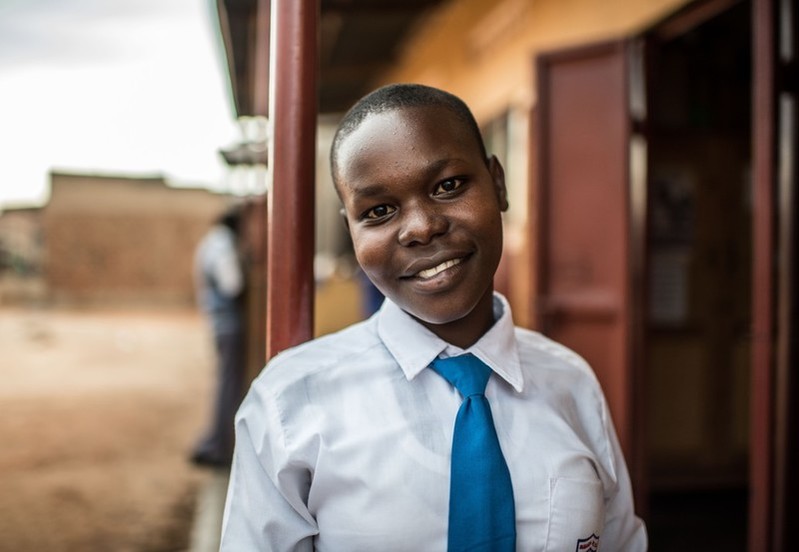
Saving lives in rural Uganda
The Safe Abortion Action Fund (SAAF) which is hosted by IPPF was set up in 2006 in order to support grass-roots organisations to increase access to safe abortion. One such organisation which received support under the last round of funding is called Volunteers for Development Association Uganda (VODA). When Noah Musoke was a young man his older sister had an unsafe abortion that nearly took her life. Luckily, his sister was able to tell him what had happened. He put her on his bicycle in rural Uganda and took her to the nearest health centre where she received post abortion care. Abortion was highly restricted in Uganda then and remains so today. The law and constitution are very unclear as to when an abortion is allowed and in practise it is almost impossible to receive a legal abortion in the country. It was because of these legal restrictions that Noah’s sister resorted to crude unsafe abortion which haunted her for life. “She never had a child. She lost many marriages; she lost many of them until she died. I think if there was a safer way to do this my sister would have had happier life” said Noah, one of the few Ugandan men advocating for access to safe abortion in Uganda. His experience led Noah to set up an inspirational organization called Volunteers for Development Association in Uganda (VODA Uganda) which, following a successful application to the Safe Abortion Action Fund (SAAF), in 2013 has been helping women and girls to avoid unwanted pregnancies and to access post abortion care. The SAAF funded project works with schools, communities and healthcare providers, training people to become community counsellors and referrers who are able to listen to young people, offer advice and refer them for services to well-trained local health providers. “People are conservative on some issues and one of very sensitive issues is sexual reproductive health and most especially abortion. Many people have very negative feelings about this yet it is a cause of maternal mortality in Uganda‚” Noah said. The 2016 Uganda Demographic Health Survey put teenage pregnancy at 25% from the 24% in the previous surveys. The increase means 1 in every 4 girls aged between 15-19 years in Uganda is either pregnant or already has a baby. It is for this reason that VODA Uganda’s project targets school girls in Kasawo and Namuganga sub counties located in Mukono district. “Here sex is assumed to be for married people and it is a private issue. Now when these young people, for various reasons, engage in sex, they get pregnant and they know they will miss school or their parents will be very harsh to them so they resort to unsafe abortion” he said. “And as a result, people resort to very crude methods in case she needs to have an abortion. They will resort to very unsafe methods which have always led to death and serious complications,” he adds. In the three years since VODA Uganda started their SAAF funded project they have been able to see some very positive results. They have changed perceptions about abortion in the community, bringing community leaders and health workers on board, explaining the problems of unsafe abortion and directing girls and women to post-abortion care services. Currently there are four health centres in the two sub counties that are offering post-abortion care, contraception and counselling to girls and women referred there by VODA Uganda school counselors as well as community volunteers. At a health facility in Namuganga, Anne* has just received post-abortion-care services from a midwife, Grace. The 14-year-old nearly died of post-abortion complications after her grandmother used local herbs to terminate her pregnancy. “A man just caught me — or raped or defiled me— when I had gone to visit my grandmother. After he had finished, he told me to go back home and never to tell anyone about it” she said. The midwife at the facility, Grace, said the cases of unsafe abortion especially among teenage girls are widespread. “Most of them do come here and the situation is very bad, when they are bleeding severely. We don’t have blood at the health centre so we just give first aid then we refer to the main hospital.” Grace explained. “They go to local herbalists and they give them some drugs. Some of them tell me that they give them emilandira (roots) which they insert inside there to rupture the membranes.” She added. Anne is lucky she did not die. With the successful post-abortion-care, she looks forward to returning to school next term. At the next health centre in Kasawo, Josephine, the midwife would never have thought of helping girls and women with abortion services before she was trained by VODA Uganda about the need to avert the deaths that were occurring in villages due to unsafe abortion. “I used to have negative attitude about it. Because according to my religion, it was not allowed in the church. But again when you look into it, it’s not good to leave someone to die. So I decided to change my attitude to help people.” revealed Josephine. Today, she is happy that fewer women and girls are dying because of unsafe abortion. “VODA people have helped us. We even provide the clients with family planning to avoid another pregnancy since their hormones are very sensitive” she added. In Namuganga and Kasawo, the approach of using school girls and a team of volunteers has worked in changing community perceptions about abortion as well as helping girls to access information about unwanted pregnancies. At Kakoge village, 35-year-old John Owoli is one of the VODA Uganda Community volunteers. He knows that his Catholic religion does not support abortion. However Owoli who is a catechist at a nearby church has used his position to preach against unsafe abortion. Asked why? He replied: “Just to save life. I attended two burials from unsafe abortions because they had used local drugs so I saw that it was a good thing to participate in saving people’s lives.” Owoli, a father of six said before he joined VODA Uganda, he had heard about family planning and unsafe abortion and he did not think they were big issues. “But after this training, I saw it was a serious issue. And I must be included in stopping it. Because if we stop this kind of dying, most especially the young ones, it means that development is coming to our community”. Most girls according to Owoli have changed their behaviours by using condoms, family planning, abstinence and now know about safe abortion. Owoli would like to see more health facilities constructed closer to the villages so that those referred for post-abortion care services don’t have to walk for seven kilometers to a health centre. *not her real name Stories Read more stories about the amazing success of SAAF in Uganda A mother's heart break after losing teen daughter to unsafe abortion A volunteer's special understanding of how safe abortion can save lives Religious leaders help tackle unsafe abortion Collaborating with public health providers Working to stop unsafe abortion for school girls Tackling taboos about abortion $(document).ready(function(){ $(".owl-carousel").owlCarousel({ items:3 }); });
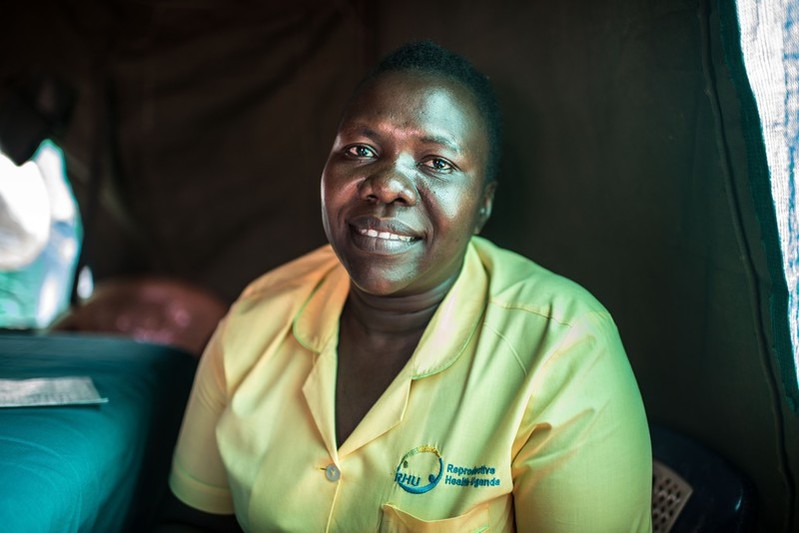
All of the clients, all of the time: Our staff never turn anyone away
At the end of a long day, Anicia, closes the clinic with praise for her colleagues who never turn anyone away. "We open at 8am. From 8am we will be receiving a variety of clients for different services - whether post-abortion care, whether antenatal care - we have to give them all the services. We may end up to 10pm, because we'll never chase our clients, we'll never close the place when we have a client inside. People come when they have no hope. You receive them, and you give them hope by treating them properly and giving them quality services. The client gets better and will never forget you. And follow them up on the phone. "How are you doing?" It's good for us to know that they're doing well. Others even tell us 'The way you handle us, we love it so much'." Follow a day in the life of our team and clients in Gulu, Uganda 07:00 08:00 9:00 10:00 11:00 12:00 13:00 14:00 15:00 16:00 17:00 22:00 Prev Next 7am: The team prepare for the long day ahead "Every year tens of thousands of Ugandans come to our clinic. Everyone is welcome. Here are just a few of the people that we served in one day last month." READ MORE 8am: Nancy, 19, becomes a volunteer "I was suffering but when I came here, I was treated and I got better. Now I'm inspired to volunteer here" READ MORE 9am: Monica, 25, a sex worker's story "I am sex working. I came here for Hepatitis B testing and also counselling. I have so many personal problems, but here….they’re so caring." READ MORE 10am: Jane, 23, saved by family planning "After multiple miscarriages, family planning here has helped me a lot. I'm glad we've been able to space the number of children we've had. I am not growing old, I am fresh." READ MORE 11am: Vicky, handling disabilities "I'm deaf so accessing services is hard, but here they really try to speak in sign language." READ MORE 12pm: Dorcus, first time patient "This is the first time I've ever come here, I like the service. They give good counselling so I recommend coming." READ MORE 1pm: Christine, 45, a grandmother's tale of living with HIV "I am living with HIV and had HPV. They treated me and now I'm free of cervical cancer." READ MORE 2pm: Lilian, struggling mother of six with sickle cell " I have sickle cell disease and so do all my children. I want to have my tube removed so that I don't get pregnant again but I don't know if my husband will allow it." READ MORE 3pm: Brenda and Francis get fertility treatments "Fertility treatment is a sensitive issue in Uganda but they help us a lot and we get proper treatment." READ MORE 4pm: Joyce, 25, repected regardless of her disability "I realised that at this place they don't segregate. Us people with disabilities have challenges at the main hospitals. You go there, people around look at you as if you are not a human being and you don't fall sick." READ MORE 5pm: Mobile clinic provides outreach services to remote villages "Our outreach to remote communities is a 'one-stop-centre'. We give family planning, vaccines for HPV, malaria, and Hepatitis B, HIV testing and more." READ MORE 22pm: Still giving the last client our very best "Together, we have great teamwork. Sometimes we're still working up to 10pm because we never chase out our clients. We’ll never close the place when we have a client inside. People come when they have no hope." READ MORE
Pagination
- Previous page
- Page 7
- Next page






